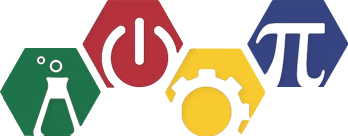Exploring how students engage in making sense of quantitative problems in biology, chemistry, and physics
Congratulations to all of the PI's and university partners involved in the new NSF-funded collaborative grant "Assessing Mathematical Sensemaking in Science (AMaSS)": Kevin Haudek, Melanie Cooper and Rachel Henderson at MSU; Anita Schuchardt at University of Minnesota; Jennifer Kaplan at Middle Tennessee State University and Michael Fleming at University of California-Stanislaus.
This four-year project, funded by the National Science Foundation (NSF) focuses on developing tools to assess quantitative thinking in disciplinary science courses. Three-dimensional learning (3DL) consists of students integrating key disciplinary core ideas (DCI's) and cross-cutting concepts (CCC) with scientific practices. When this occurs, three-dimensional learning is happening!
Three-dimensional learning requires that new ways of assessing student work and thinking are needed; instructors must have a way to decipher what is happening in the learner's mind in terms of understanding, or 'sensemaking', which is broadly defined as using prior knowledge to understand a new concept or to solve problems and can involve iteratively creating and revising explanations.
Mathematical sensemaking in science (MaSS) focuses on students’ ability to blend core disciplinary science ideas with cross-cutting mathematical concepts, such as patterns and proportions, while engaging in scientific practices such as computational thinking, making predictions, and reasoning from evidence.
This project seeks to extend previous work to identify opportunities for MaSS in the classroom to develop open-ended assessment tasks. The project will use results from these assessments to explore how a diverse set of undergraduates engage in MaSS across biology, chemistry, and physics. It meets the desired societal outcomes of improving STEM education at the undergraduate level by providing engaging and authentic assessments capable of revealing student thinking. Findings from this project will help inform teaching practice in undergraduate STEM courses and help students foster computational thinking skills. The project will also advance understanding of how undergraduates integrate thinking about key STEM concepts and mathematics across disciplines by following a 3DL assessment framework.
Funding for this project was generously provided by the National Science Foundation.


